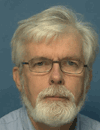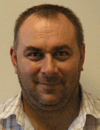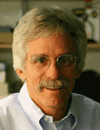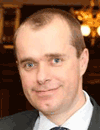Co-Located Conference AgendasAdvances in Biodetection and Biosensors | Advances in Microarray Technology | Lab-on-a-Chip European Congress | Single Cell Analysis Europe | 

Wednesday, 28 March 201208:00 | Registration | |
Next Generation Biosensors and Biodetection Techniques |
| | 09:00 |  | Keynote Presentation Capacitive Immunosensors – A Tool for Detection Where Sensitivity of Conventional ELISA is Not Sufficient
Bo Mattiasson, Professor, Lund University, Sweden
|
| 09:30 | Electrochemical and Optical Multiple Parameters Genosensors: Tools for Disease Predisposition Analysis
Valerio Beni, Assistant Professor, Biosensors & Bioelectronics Centre, Linkoping University, Sweden
In this seminar the development and application of an electrochemical and of a fluorescence genosensors, both for the low to medium resolution typing of HLA genes associated to Coeliac disease, will be presented. | 10:00 | Optical Resonator-Based Biosensors: Plasmonic Enhancements for Label Free Single Molecule Detection
Frank Vollmer, Principal Investigator, Max Planck Institute for the Science of Light, Germany
Whispering Gallery Mode (WGM) biosensors and optical-resonator derivatives have emerged as the most sensitive microsystem biodetection technology that does not require chemical amplification or labeling of the analyte. To achieve the ultimate goal of label-free single molecule detection physical mechanisms are required to boost current sensitivity levels. I will present a mechanism based on plasmonic enhancement of WGM for ultra sensitive molecular detection on an integrated platform. | 10:30 | Coffee Break and Networking in the Exhibition Hall | 11:15 | Stimuli-Responsive Materials – Opening the Way to Advanced Fluidic Platforms for Future Autonomous Chemo/Bio-Detection Systems
Dermot Diamond, Professor, Principal Investigator, Insight Centre for Data Analytics, National Centre for Sensor Research, Dublin City University, Ireland
In this presentation, I will identify the key issues that are inhibiting the integration of chemo/bio-detectors and sensors into the communications infrastructure that underpins the emergence of wireless sensor networks (WSNs). In particular, the importance of microfluidics for enabling in-situ advanced sample handling in autonomous analytical instruments will be emphasised. | 11:45 | Transdermal Monitoring and Biosensors'
Patricia Connolly, Vice Dean Research, Strathclyde University, United Kingdom
The advantages and disadvantages of transdermal monitoring combined with biosensors for a minimally-invasive diagnostic approach will be discussed. | 12:15 | Lunch and Networking in the Exhibition Hall | 13:30 | Poster Session | 14:15 |  | Keynote Presentation Next Generation Biosensors and Biodetection Technologies
Jeff Newman, Programme Director, Cranfield University, United Kingdom
|
| 14:45 | “Contactless” Impedance Analysis for Real-Time Cell Monitoring.
Tim Cox, Research Director, Institute of Bio-sensing Technology, University of West England, United Kingdom
Early detection of cytotoxicity can be detected by continuous monitoring of cells growing in a standard tissue culture plates using external electrodes to determine changes in the cells’ electrophysiological state. | 15:15 | Coffee Break and Networking in the Exhibition Hall | 16:00 | Label-Free Pathogen and Metabolite Detection Using an Organic Electrochemical Transistor
Roisin Owens, Associate Professor, Ecole Nationale Supérieure des Mines de St Etienne, France
The organic electrochemical transistor is a new technology that will permit the development of low cost sensors for rapid and label-free detection. By integrating withcells or enzymes we are developing highly sensitive sensors that permit pathogen and metabolite detection. | 17:00 | Highly Sensitive and Rapid Magnetic Biosensors
Wendy Dittmer, Principal Scientist, Philips Research, United Kingdom
We present a handheld integrated testing technology that is able to perform a multiplex of sensitive, high performance quantitative assays in parallel from a single finger-prick sample. The recently developed biosensor employs precisely actuated magnetic particles and a compact optical imagining technique. | 17:30 | Drinks Reception |
Thursday, 29 March 2012 |
Nucleic Acid Diagnostic Tests |
| | 09:30 |  | Keynote Presentation From Nucleic Acid to Small Molecule Detection: The Assay Agnostic Molecular Interaction Platform Back-scattering Interferometry
Darryl Bornhop, Professor, Vanderbilt University, United States of America
It will shown that back-scattering interferometry is a unique label-free sensor that has picomolar sensitivity, has complex matrix compatibility and is assay agnostic. Examples to illustrate this value will include DNA detection, small molecule quantification, membrane-protein drug discovery and syphilis serology. |
| 10:00 | Analysis of Proteins and Nucleic Acids on a Chip With Electrically Switchable Biointerfaces - switchSENSE
Ulrich Rant, Group Leader, Technical University of Munich, Germany
A novel method for the chip-based analysis of molecular interactions will be introduced. In addition to ‘classical’ binding parameters (kon, koff, KD), the size of the bound analyte is determined by a molecular dynamics measurement on-chip. | 10:30 | Coffee Break and Networking in the Exhibition Hall | 11:15 | Detection of mutations With DNA Microarrays: Thermodynamics of DNA Hybridisation
Jef Hooyberghs, Project Manager, Flemish Institute for Technological Research, Belgium
The presentation will show how the use of microarrays permits the quantification of free energy parameters of DNA hybridization. As an application the detection of point mutations will be discussed together with a relevant case study in medical diagnostics. | |
Point of Care and Field Pathogen Detection Devices |
| | 11:45 |  | Keynote Presentation The Impact of Biosensors on Molecular Diagnostics
Till Bachmann, Reader, University of Edinburgh, United Kingdom
Tremendous technical progress has been made to advance biosensors to address the exquisite demands of molecular diagnostics. The presentation will explore the key aspects of biosensor impact including the role of new biomarkers and outline the current opportunities in point of care testing and companion diagnostics to facilitate personalised medicine. |
| 12:15 | Lunch and Networking in the Exhibition Hall | 13:15 | Poster Session | 14:00 | Length-Scales in Biosensor Design: From Molecular Engineering to Microdevices
Tony Cass, Professor of Chemical Biology, Imperial College London, United Kingdom
In this presentation I will describe some of our recent work in minimally invasive, microfabricated glucose sensors and screen-printed aptasensors to illustrate these concepts. | 14:30 | Exploiting Carbon-Based Composites for Bacterial Threat Detection
Duncan Sharp, Senior Lecturer, Leeds Metropolitan University, United Kingdom
Printable sensing technologies offer a versatile and cheap fabrication method for novel electrodes and sensors. The development, analytical properties and potential exploitation for use in smart wound-diagnostics are discussed. | 15:00 | Coffee Break and Networking in the Exhibition Hall | 15:30 | Chemiluminescence-Based Biosensors for Point-of-Care Multiplex Sensing as a Companion Diagnostics in Personalized Medicine
Aldo Roda, Professor, University Of Bologna, Italy
A portable microfluidic-based biosensing device for personalized diagnostic was developed, exploiting chemiluminescence imaging detection. Its main feature is the ability to combine on one platform different types of assays, ranging from enzyme activity measurements to ultrasensitive immunoassays and nucleic acid-based assays. | 16:00 | Instrumentation for Point of Care Testing
Gary Thorpe, CEP Evaluation Centre, University of Birmingham, United Kingdom
| 16:30 | Close of Conference |
|


 Add to Calendar ▼2012-03-28 00:00:002012-03-29 00:00:00Europe/LondonAdvances in Biodetection and BiosensorsAdvances in Biodetection and Biosensors in Edinburgh, ScotlandEdinburgh, ScotlandSELECTBIOenquiries@selectbiosciences.com
Add to Calendar ▼2012-03-28 00:00:002012-03-29 00:00:00Europe/LondonAdvances in Biodetection and BiosensorsAdvances in Biodetection and Biosensors in Edinburgh, ScotlandEdinburgh, ScotlandSELECTBIOenquiries@selectbiosciences.com